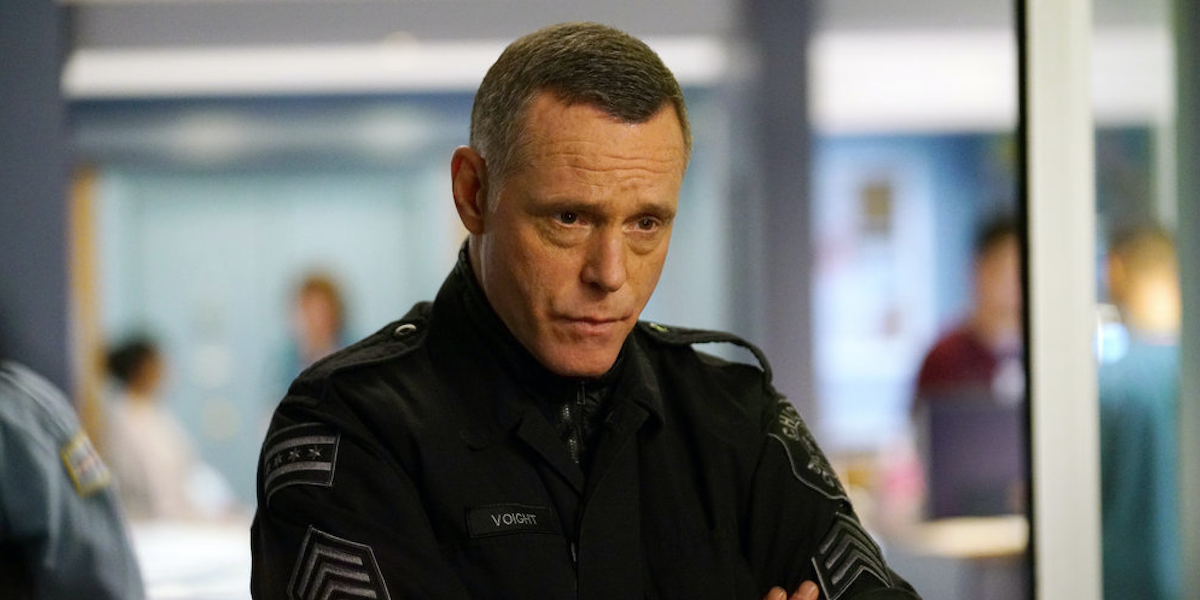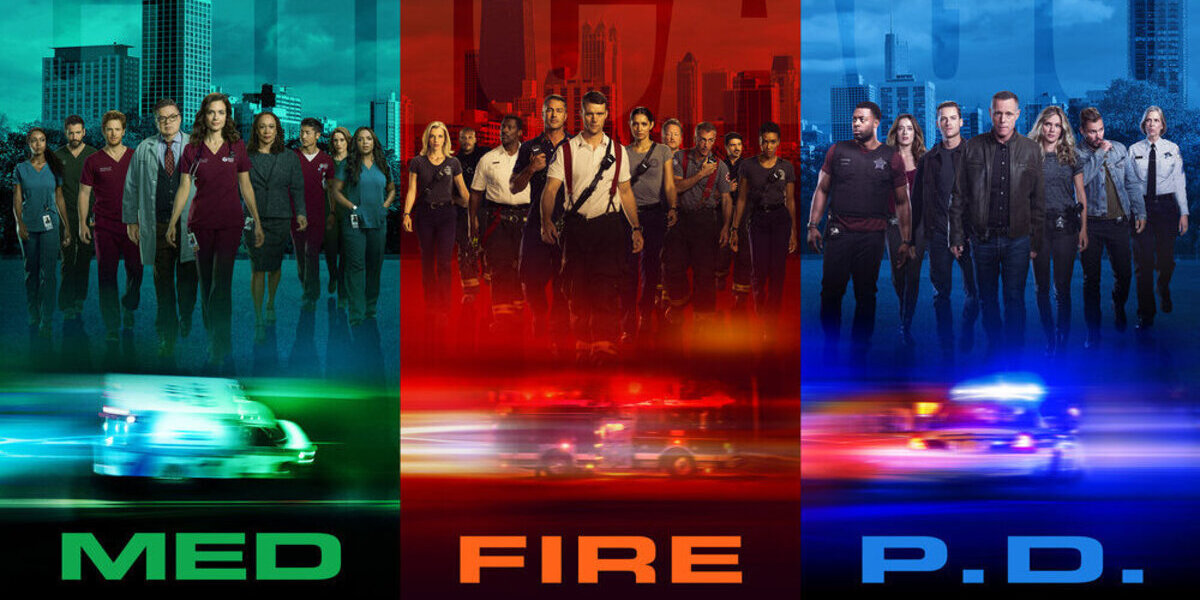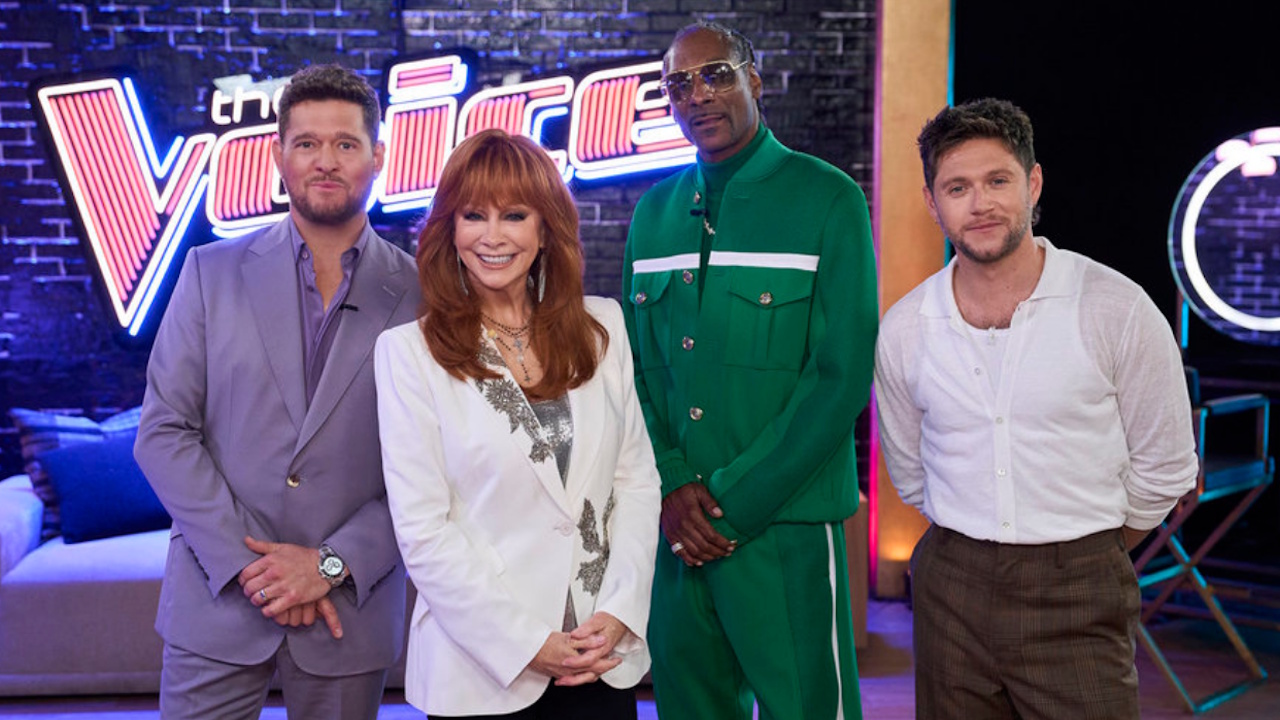Study Calls Out Chicago P.D. For Treating Unethical Police Officers As Heroes

The majority of TV audiences know where the line is drawn between reality and fiction, at least when it comes to high-concept comedies, supernatural horrors and futuristic science fiction. However, when it comes to the multitude of crime dramas out there like Chicago P.D. and the NCIS franchise, viewers' beliefs may start to skew unrealistic. At least, that's the kind of conclusion that's addressed in a recent study that looks at how TV's biggest crime dramas are consistently guilty of misrepresenting both criminals themselves and the entire criminal justice system.
The racial justice organization Color of Change revealed its massive new report this week, which was conducted in collaboration with the Norman Lear Society at the University of Southern California. Looking back to the 2017-2018 TV season, The study focused on 353 episodes from 26 TV shows that feature police officers as the main characters, with Brooklyn Nine-Nine serving as the only official "comedy" in the group. The creative side of those shows included 42 creators, 27 showrunners and 275 writers.
The results from the Color of Change study are an eye-opening look at how imbalanced the concept of authority and justice are on many of these shows, at least when it comes to how people of color are utilized, and how often law-breaking cops are treated as heroes instead of criminals.
Across the board, the study showed that TV protagonists are constantly shown to break rules while ignoring abuses and biases, all in the name of solving cases. (Too bad The Shield wasn't involved here.) Perhaps if the shows would then deliver the proper retribution for those offending characters, the balance would tip back closer to actual justice. However, I don't think audiences will ever get the full season of Chicago P.D. episodes that it would take to hold Jason Beghe's Sgt. Hank Voight accountable for all of his career transgressions.
Here's one particularly revealing assessment from the study.
Across all 353 episodes, there were only 6 criminal justice practitioner (CJP) characters depicted as being charged with crimes related to their wrongful actions (on NCIS: New Orleans, Bull and Seven Seconds), and only 4 CJP characters depicted as being suspended for their behavior—3 with pay (on NCIS: Los Angeles, How to Get Away with Murder and Lethal Weapon). No CJP characters were depicted as being fired, being convicted or facing legal punishment for engaging in wrongful behavior, with 1 exception. On Seven Seconds, the depiction of just 1 police officer from a group of bad actors being found guilty, and given a minimal sentence, served as a testament to the lack of justice for victims, disincentives for officers and appropriate accountability.
Beyond the notion that TV crime dramas are convincing audiences to lionize their dirty-cop protagonists, the study also points to racial bias as a major contributing factor for the informational and emotional disparity. While perhaps not throwing full-on racist accusations at any showrunners or writing staffs, the study's authors point out just how disproportionate those staffs are on the whole.
Of the 26 shows in the study, only three of them had showrunners who weren't white men, and none of them are still airing. (Shades of Blue, Luke Cage and Seven Seconds.) Luke Cage and How To Get Away with Murder had the biggest percentages of black writers, with 63% and 27% respectively, but a whopping 13 of the shows have zero black people in the writers room. At least three of them – Blue Bloods, NCIS and Mindhunter – have exclusively white writers.
Your Daily Blend of Entertainment News
According to the study, it's extremely important for people of color to be involved in the writing process for crime dramas such as these, since they often deal with unwarranted police attention and injustices of the sort. That notion is played out hyperbolically on those shows, too, with people of color showing up fewer times than other characters, and often in roles as suspects and criminals. So, in essence, viewers are very often seeing white cops breaking rules to take down non-white criminals without ever being punished for it. Which, in turn, is potentially affecting how everyday citizens view real-world police efforts.
Here's an insightful piece from the study's final summary:
When series writers shy away from explicit depictions of racial profiling and other racially biased practices—including explicit discussions about their prevalence, consequences and wrongfulness—they erase an important reality and miss an important opportunity to bring viewers into contact with that reality in a productive way. By doing so, they construct a sanitized version of the criminal justice system that implies there is no racial bias when it comes to who is targeted by police, charged by prosecutors, convicted in court and serving in prison. Mythologizing the criminal justice system—implying that justice gets done because the rules get broken, that abuse and harm are rare, that racial bias and systemic racism do not exist, that current police methods keep people safe and are necessary for solving crimes—is dangerous. Inaccuracies and myths about the justice system deny viewers the opportunity to reckon with the truth, and undermine the forces working for reform and working against injustice, especially racial injustice.
Think about how many people believe that cops are required to give new arrests a phone call, simply because that TV and movie trope has been shown to them hundreds of times. Or, on the flip side, how little do audiences get to see TV cops filling out hours of paperwork, despite the fact that such paperwork is a major element of their daily shifts? We tend to take details like these for granted, knowing that network execs would never allow NCIS to air an hour of form-filing, but it's important to keep a critical eye on everything viewers do see on the small screen's biggest hit dramas.
Now, with all of that said, the causal effects that TV viewing has on people and society at large is still an open question. (Remember when a generation of Beavises and Butt-Heads was imminent?) As well, TV audiences presumably don't want to watch shows where cop characters are constantly getting busted and ousted every time they break the law. And enough viewers out there (hopefully) know by now that even "grounded" TV dramas eschew realism much of the time in favor of sensationalism.
Chicago P.D. airs Wednesday nights on NBC at 10:00 p.m. ET, following episodes of Chicago Med and Chicago Fire. Stay tuned to CinemaBlend for more from those shows, and head to our Winter and Spring premiere schedule to see what else is on the way soon.

Nick is a Cajun Country native and an Assistant Managing Editor with a focus on TV and features. His humble origin story with CinemaBlend began all the way back in the pre-streaming era, circa 2009, as a freelancing DVD reviewer and TV recapper. Nick leapfrogged over to the small screen to cover more and more television news and interviews, eventually taking over the section for the current era and covering topics like Yellowstone, The Walking Dead and horror. Born in Louisiana and currently living in Texas — Who Dat Nation over America’s Team all day, all night — Nick spent several years in the hospitality industry, and also worked as a 911 operator. If you ever happened to hear his music or read his comics/short stories, you have his sympathy.

